Today, I finish my preliminary analysis of the 2018 midterms with the Southern states.
ALABAMA
- 7 districts- 6 Republicans and 1 Democrat
- Incumbents facing primary challenge- 4 (3 GOP/ 1 Democrat)
- Incumbents facing opposition party challenge- 4 (all Republicans)
- Senate race- To be determined
It’s Alabama- no district is changing hands.
The special election to replace Jeff Sessions will be this year (2017) and will be discussed in a separate entry, but hoping for a Roy Moore victory.
ARKANSAS
- 4 districts- all Republican
- Incumbents facing primary challenge- 1 (Steve Womack in the 3rd)
- Incumbents facing opposition party challenger- all 4
- Senate race- none in 2018
All four Congressmen are Republican and it is safe to say that come 2019, all four Congressmen will be Republican. Only one has drawn a primary challenger, although the Democrats will field a challenger in all four districts.
FLORIDA
- 27 districts- 16 Republicans/ 11 Democrats
- Open race- 1 in the 27th where Ilena Ros-Lehtinen (R) is retiring
- Candidates in open race- 3 Republicans and 3 Democrats
- Incumbents facing primary challenge- 7
- Incumbents facing opposition party challenge- 23 (of 26)
- Senate race- Bill Nelson (D)- 1 primary challenger and 3 declared Republicans (with a big name a possibility)
The key GOP districts to watch are the 18th (Brian Mast/ Cook +3 GOP), the 26th (Carlos Curbelo/ Cook +1 GOP) and the open 27th. Under the best of conditions, I expect the 26th and 27th Districts to flip in 2018. The key Democratic held districts are the 7th (Stephanie Murphy/ Cook +4 GOP) and the 13th (Charlie Crist/ Cook +1 GOP). Murphy will face a primary while Crist has yet to get a primary or general election opponent. I expect the GOP to possibly take at least one of these districts mitigating losses elsewhere.
Democratic incumbent Senator Bill Nelson faces a primary challenge and thus far three Republicans have declared their candidacy. Florida has a deep GOP bench, so more may come later with the possibility of Governor Rick Scott being one of them since he is term-limited in 2018. Considering that Trump has a 42% approval rating while Nelson has a 53% rating, absent a stronger Republican challenger, this seat may be out of reach. If Scott enters the race, all bets are off and this would be more in toss-up territory.
GEORGIA
- 14 districts- 10 Republican and 4 Democrats
- Incumbents facing primary opponents- 5 (4 GOP/1 Democrat)
- Incumbents facing opposition party challenge- 8 (all Republican)
- Senate race- none in 2018
I do not think there is too much to really see in 2018 in Georgia and I do not expect anything to change. Perhaps, the Democrats will come after the 6th District again to take Karen Handel down. This writer says let them waste more money in a losing cause.
KENTUCKY
- 6 districts- 5 Republican/ 1 Democrat
- Incumbents facing primary challenge- none
- Incumbents facing opposition party challenge- 5
This should be a low drama event in Kentucky in 2018. If there is any interest, it would be the 6th represented by Republican Andy Barr who has drawn three Democrats to their primary. Still, don’t expect any changes.
LOUISIANA
- 6 districts- 5 Republican and 1 Democrat
Since Election Day is a jungle primary with a runoff later in December, challengers are usually late in coming. Therefore, more detailed analysis will be forthcoming as Election Day approaches and the races flesh out. There is no Senate race in Louisiana in 2018.
MISSISSIPPI
- 4 districts- 3 Republican/ 1 Democrat
- Incumbents facing primary challenge- none
- Incumbents facing opposition party challenge- 2
- Senate race- Roger Wicker (R)- no primary challenger and 1 declared Democrat (a Bernie Sanders activist)
Politically, 2018 looks to be a boring year in Mississippi. Expect the 3 Republicans and 1 Democrat to be sent back to Washington. Even the Senatorial race where Roger Wicker is seeking another term is drawing yawns… unless Chris McDaniel enters the race, then things should be a little more interesting.
NORTH CAROLINA
- 13 districts- 10 Republicans and 3 Democrats
- Incumbents facing primary challenge- 5
- Incumbents facing opposition party challenge- 10
- Senate race- none in 2018
Democrats may be feeling their oats here as two Republican incumbents- George Holding in the 1st and Robert Pittinger in the 9th- have drawn at least three candidates to the Democratic primary in each district. Realistically, the chances of any seats changing parties in 2018 is not that great. None of any of the districts are particularly vulnerable at this point.
SOUTH CAROLINA
- 7 districts- 6 Republican and 1 Democrat
- Incumbents facing primary challenge- 2
- Incumbents facing opposition party challenge- 3
- Senate race- none in 2018
Like its neighbor to the north, expect little drama from South Carolina. The only excitement may be in the 7th where Tom Rice (R) has drawn three primary challengers.
TENNESSEE
- 9 districts- 7 Republican and 2 Democratic
- Open races- 2- John Duncan (R) in the 2nd and Diane Black (R) in the 6th
- Candidates in open races- 2nd District: 5 Republicans and 1 Democrat/ 6th district: 3 Republicans and no Democrats
- Incumbents facing primary challenge- 2 (both GOP)
- Incumbents facing opposition party challenge- 4
- Senate race- Bob Corker (R)- 1 primary opponent and 1 Democrat While the partisan breakdown (7-2 GOP) will likely remain the same, some Republican faces may change.
While the partisan breakdown (7-2 GOP) will likely remain the same, some Republican faces may change. It is quite possible that any of the following may lose a primary challenge: Scott DesJarlais in the 4th or Marsha Blackburn in the 7th. Whoever emerges from the GOP primary will likely win in November. Both open races in districts currently held by Republicans should remain in the hands of the GOP.
Republican incumbent Bob Corker faces a competitive primary and there is one declared Democratic candidate. Corker enjoys an approval rating well above 50% and Trump gets a 52% nod of approval. Whether Corker or another Republican, don’t expect a loss here. Larry Crim, a frequent candidate, is his primary challenger and Corker’s chances got better when Tim Burchett- considered by some a serious challenger- opted to run in open 2nd District race instead.
VIRGINIA
- 11 districts- 6 Republican and 5 Democrats
- Incumbents facing primary challenge- 2 (both Republicans)
- Incumbents facing opposition party challenge- 6
- Senate race- Tim Kaine (D)- no primary challenger/ 2 declared Republicans
Of the seven Republican incumbents, five of them apparently have huge targets on their backs given the number of Democratic opponents they have attracted. Other than Scott Taylor in the 2nd and Barbara Comstock in the 10th, it is hard to see Democrats making much headway here. Taylor is probably the more vulnerable of the two. Only one of Virginia’s 4 Democratic incumbents has drawn a GOP opponent and that is Gerry Connolly in the 11th. A better target may be the 4th District, but no Republican challenger has emerged yet.
Tim Kaine, the Democratic incumbent who ran with Hillary Clinton in 2016 and emerged looking like Lincoln Chafee and talking like Karl Marx, is up for reelection. Although he has drawn two potential Republicans into the race, at least four bigger names have been rumored to be considering a run, although I would not necessarily rule out Corey Stewart. For a former vice-presidential candidate who ran with the person that won your state, you would expect Kaine to have a better approval rating than 50% (a high 36% disapproval rating also). Although probably good enough to win against a relative unknown, if a Republican candidate like Carly Fiorina or Jim Gilmore jumps in- given the distance between those two and Trump- Trump’s 39% approval rating in Virginia will be of no benefit to Kaine. This is a sleeper race that needs to be watched, especially if more Republicans jump into the fray.
Stay tuned… it is going to be a very interesting midterm.



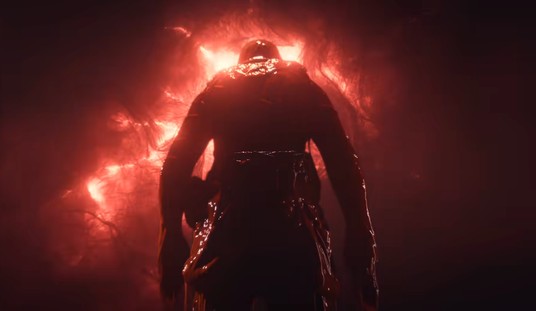
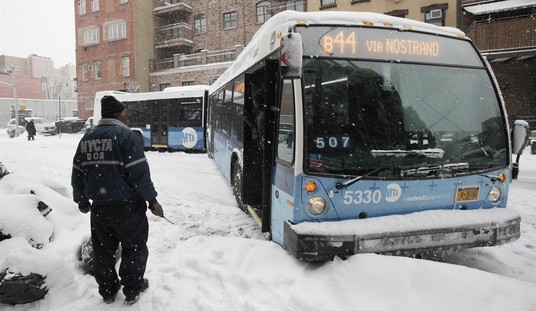
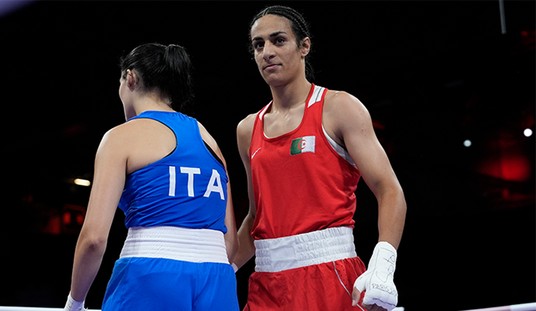

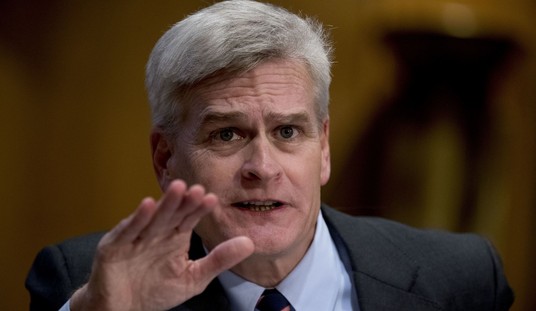
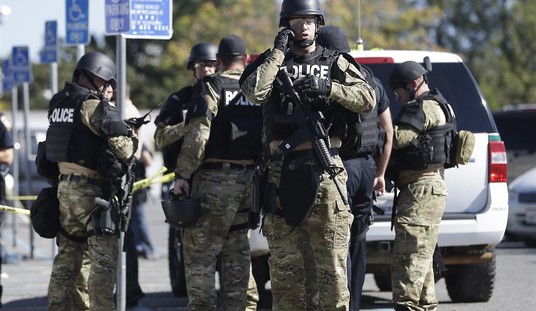
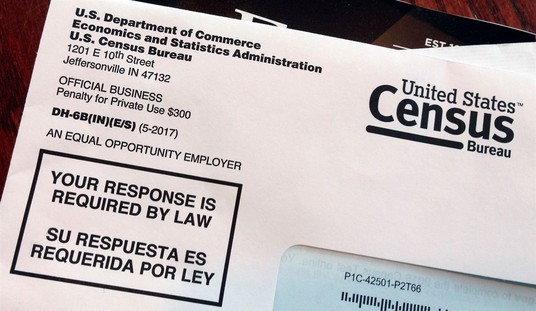



Join the conversation as a VIP Member